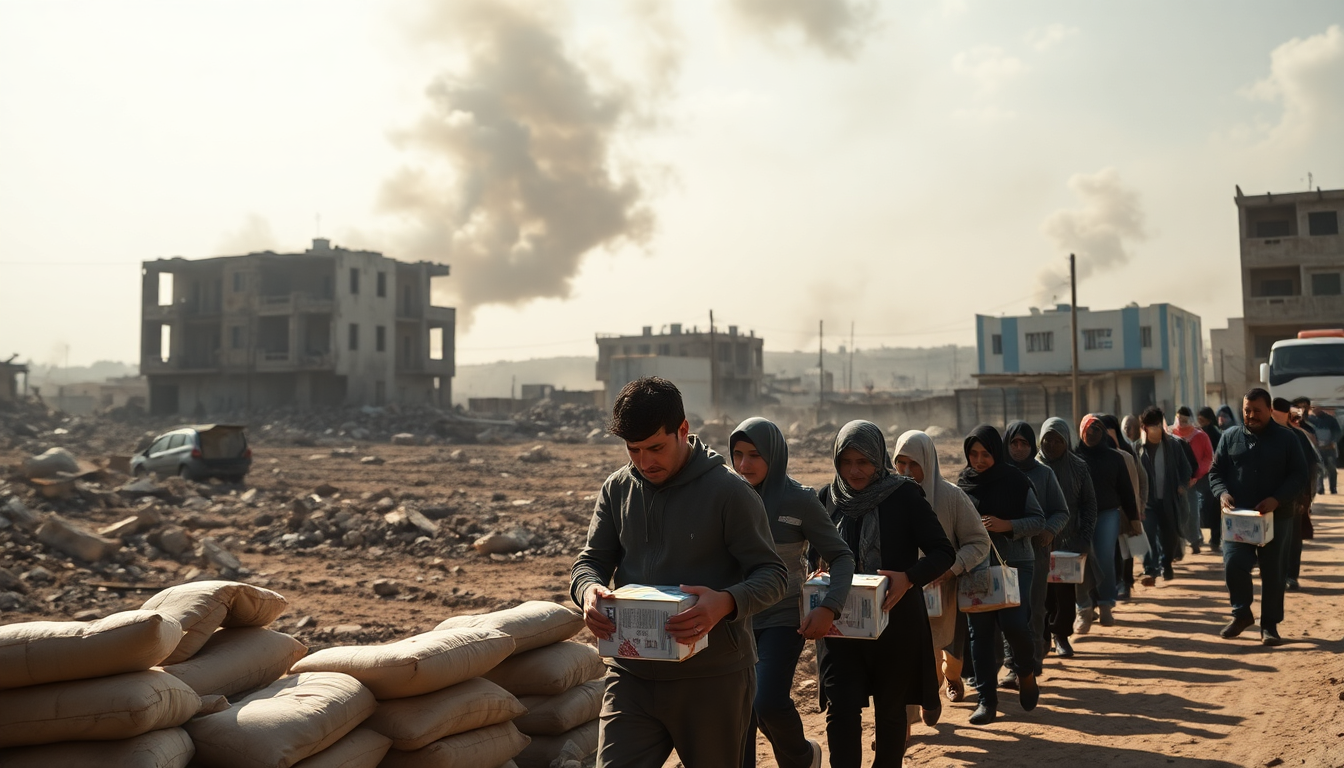Table of Contents
The humanitarian crisis in Gaza is reaching a breaking point, intensified by renewed violence and stalled ceasefire talks. Recent reports indicate that Israeli airstrikes and gunfire have tragically claimed the lives of at least 25 people, many of whom were simply waiting for crucial aid near the Zikim crossing. This heartbreaking loss underscores the severe conditions facing the Palestinian population, which is now dangerously close to famine.
The grim reality on the ground
As the conflict drags on, life in Gaza has become increasingly dire. Medical staff at Shifa Hospital have reported a disturbing trend: many casualties are the result of gunfire aimed at individuals gathering in hopes of receiving assistance. Among those killed were four people in an apartment building in Gaza City, highlighting just how indiscriminate the violence can be. With the Israeli military remaining silent on these incidents, families are left to cope with their grief amid chaos.
Ceasefire discussions between Israel and Hamas have hit a stalemate, especially after the withdrawal of U.S. and Israeli negotiating teams. Prime Minister Benjamin Netanyahu has hinted at the exploration of alternative strategies, while Hamas officials remain hopeful for a resumption of negotiations in the near future. Meanwhile, Egypt and Qatar play vital roles as mediators, stressing that the current pause in talks is only temporary.
The crisis is further compounded by alarming warnings from the United Nations and humanitarian experts about a looming famine threatening the Palestinian population. Reports indicate a sharp rise in mortality rates due to malnutrition, particularly affecting children. The already catastrophic humanitarian landscape is worsened by limited access to aid and ongoing military restrictions, despite Israel’s claims of facilitating aid delivery.
International response and aid delivery challenges
In recent days, over 250 trucks filled with aid have entered Gaza—a stark decline from the previous rate of around 600 trucks per day during earlier ceasefires. This situation is complicated by Israeli military actions that have made it difficult for humanitarian workers to operate safely. Although Israel insists it is committed to allowing aid into the enclave, the reality is fraught with significant challenges, including looting and security risks that make delivering aid increasingly dangerous.
Eyewitness accounts of the recent shootings reveal the desperation of individuals seeking food and support. Sherif Abu Aisha, who witnessed the chaos, described how the excitement of seeing what they thought were aid trucks quickly turned to horror as military fire erupted. The broader implications of such violence are devastating, leaving families to fight for survival in a landscape marked by scarcity and danger.
As international pressure mounts on Israel to address this humanitarian crisis, many Western-aligned nations and humanitarian organizations are calling for an end to hostilities. Criticism has been directed at Israel’s blockade and the newly implemented aid delivery model, which many believe is failing to meet the needs of civilians. Since the escalation of violence began in May, over 1,000 Palestinians have reportedly lost their lives, a staggering toll that highlights the urgent need for action.
Looking ahead: the need for urgent action
In response to the escalating crisis, Israel has indicated a willingness to conduct airdrops of food and essential supplies, a measure that Jordan has requested. However, aid organizations have raised concerns about the effectiveness and safety of such airdrops, warning that they could worsen existing challenges rather than provide relief. The head of the United Nations agency for Palestinian refugees has cautioned that this method is inefficient and may endanger lives.
As the international community grapples with the complexities of the situation, there is an urgent need for sustained dialogue and action to alleviate the humanitarian crisis in Gaza. The implications of ongoing violence and insufficient aid are profound, and without a concerted effort to ease the suffering, the situation is likely to spiral further out of control.
In conclusion, the multifaceted crisis in Gaza demands our immediate attention and action. With violence continuing and the humanitarian situation deteriorating rapidly, now is the time for decisive measures. The lives of countless individuals hang in the balance as we seek pathways to peace and relief for those caught in the crossfire.


